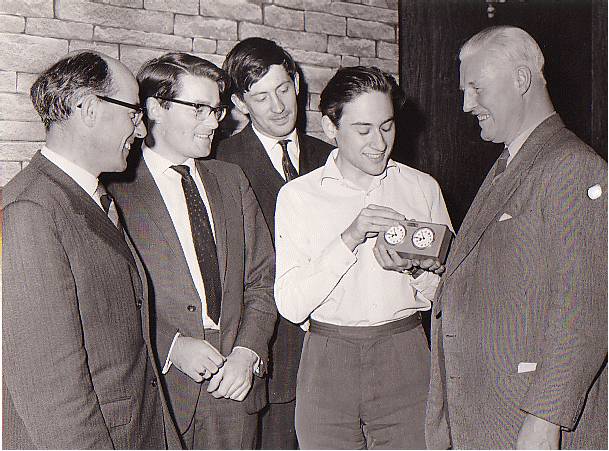I still have the book and still like it: but wasn't his most famous book of the era. That was How To Cheat At Chess, a book written so long ago I can't find a decent image of the cover to post on here. Indeed, younger readers - or indeed half the authors of this blog - may never have heard of it and may not even know who Bill Hartston is, let alone recall when "are you playing for a win?" was a favoured method of almost-offering a draw.
 Well, he said, settling down in his armchair, Hartston was a strong international master who was an early favourite to become the first English grandmaster, a title, however, that he never ultimately obtained.
Well, he said, settling down in his armchair, Hartston was a strong international master who was an early favourite to become the first English grandmaster, a title, however, that he never ultimately obtained.He was also perhaps the first English chess professional to find that writing about the game was rather more lucrative than playing it, not least as a result of the publication of How To Cheat At Chess in 1976. I was fortunate enough to be given a copy a few days ago when I was back in England. It's quite dated now, in a number of respects (notably as regards women) but it's still an amusing read, not least because it retails several entertaining anecdotes involving skullduggery in international chess events, often Student Olympiads which Hartston attended. Some of these may have been embroidered a little for publication (his recollection of this episode, for instance, differs a little from David Levy's) and real names are omitted, but when, after our game, I asked Hartston who was the opponent who asked him "you vant draw at moof tventy?" - after fifteen moves, the extra five moves being "for the spectators" when there were none - he was quite happy to tell me it was Florin Gheorghiu.
Anyway, rereading the book the other night, I wondered if it was not time,that I found out who the other masters of sharp practice were, more than thirty years after Hartston wrote about them. So I thought I'd ask. If you can convincingly identify any of the subjects below, can you tell us in the comments box?
- The Belgian player "languishing in a continental prison for illicit currency dealings".
- The Swedish player who conned his English opponent into agreeing a draw after having sealed a blunder, and the Englishman concerned.
- The American player who invited his teammates to laugh at the poor sealed move of his English opponent (and that opponent).
- The Hungarian and Yugoslavian masters who complete their scoresheets inaccurately in order to deceive their opponents into thinking that the time control has (or has not) been reached
- The player who won a county championship by falsely informing his last-round opponent that he had lost his penultimate game, thus making his opponent think that he was half a point ahead - rather than behind - and that a quick draw would therefore suffice for the title.
- The Yugoslav who in a lost position loudly accepted Gheorghiu's draw offer (which the latter had promised to make, a promise he had not honoured).
4 comments:
Don't know the answers but know the photo - Capes Trophy 1968!
PG
Almost certainly the Hungarian Gm was Farago. This habit was noted on more than one occasion IIRC.
The unlucky Brit was K Richardson, at a Student Olympiad in the early 1960s. Can't remember the nasme of the devious swede though, it got mentioned in a 1980s "Chess" mag if anybody wants to look.......
No idea is my answer to your questions ... but towards the end of a Golden Lane session last season I did have somebody ask me (without any trace of irony) "Are you trying to win this?"
Somebody asked me that question too as a draw offer. I wasn't, trivially, so we drew. Can't remember who.
Post a Comment